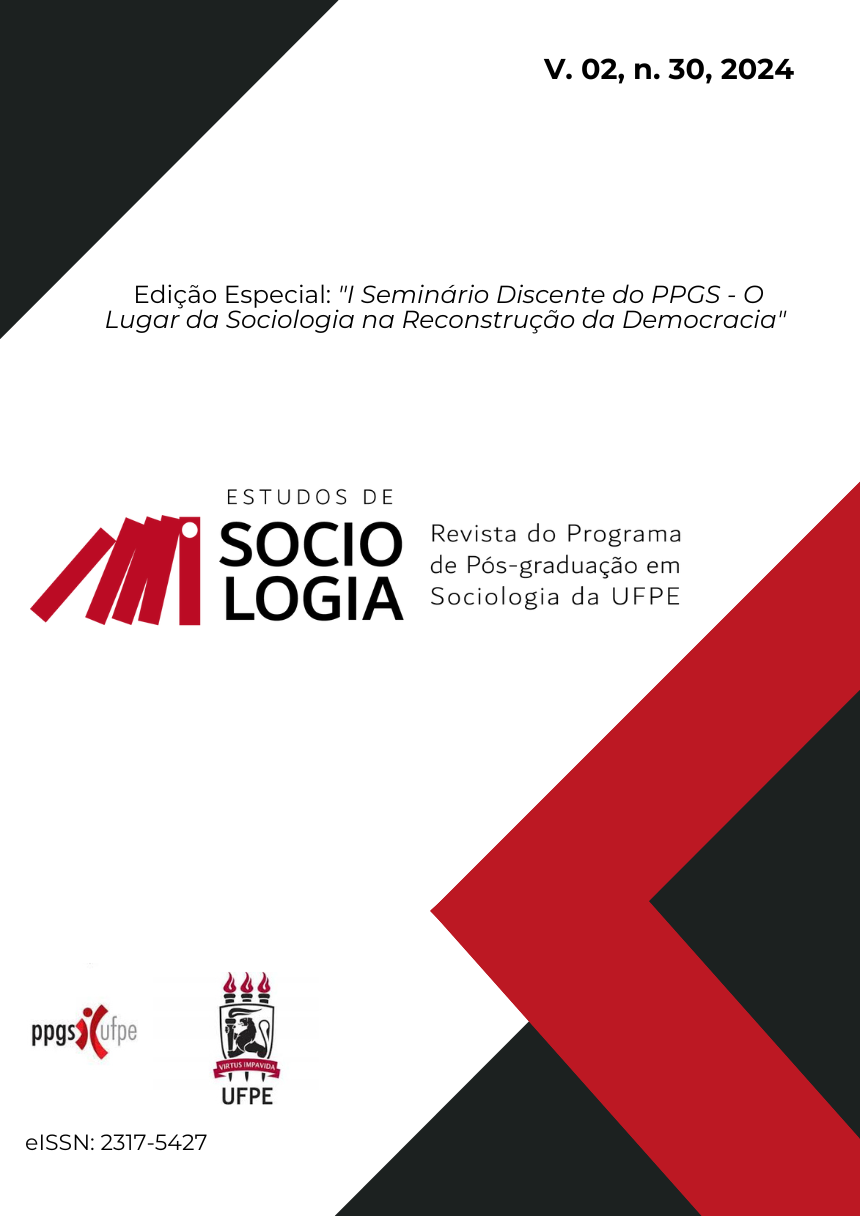Redistribution, recognition and power in the public financing of cinema in Pernambuco: a longitudinal analysis of the state's public cultural policy in the context of gender inequalities
DOI:
https://doi.org/10.51359/2317-5427.2024.261471Keywords:
cinema, sexual division of labor , redistribution and recognitionAbstract
In Recife, there was a vast cinematographic production supported financially by a public policy (Law 12,310/2002), with a significant focus on urban themes, unfolding in the engagement for the right to the city. In this phenomenon, there is significant gender inequality in management and production roles, from which we sought to understand whether and how such a policy has affected these inequalities, observing statistics and the perspectives of key actresses based on the concepts of redistribution and recognition (Fraser; Honneth, 2003). Descriptive-explanatory in nature, with a mixed methodological approach and documentary research technique, it observed statistically and longitudinally the distribution of gender throughout the period, affirmative action and films benefiting from it; and content analysis to identify and describe the perception of key actors about 1) the conditions for performing their functions; 2) gender tensions in professional experience. In the analysis, it was identified that the persistence of this phenomenon indicates, firstly, that the processes of reproduction of these inequalities were not significantly affected by the policy, or even that its implementation did not foresee strategies to interfere in these processes. Despite this, it is observed that access to this policy enabled more women to direct films, indicating a context of conflict and dispute.
References
ALMEIDA, Samara Maria de. Poéticas da resistência - um estudo sobre agência e poder nas práticas de diretoras de cinema de Pernambuco.2020. 103f. Dissertação (Mestrado em Sociologia), Universidade Federal de Pernambuco-UFPE, 2020.
BABBIE, Earl. Métodos de Pesquisas de Survey. Belo Horizonte: UFMG, 1999.
FLICK, Uwe. Introdução à pesquisa qualitativa. 3a. ed. Tradução de Joice Elias Costa. Porto Alegre: Artmed, 2009.
FRASER, Nancy. ; HONNETH, Axel. Redistribution or recognition? A political-philosophical exchange. New York; London: Verso, 2003
LINO, Bárbara. A representação fílmica da verticalização na produção audiovisual de documentários na Cidade do Recife (1996 – 2015). Relatório final de atividades do PIBIC/FUNDAJ. (mimeo). Fundaj, 2016.
LINO, Barbara; NASCIMENTO, Cristiano Borba. De esculpir e materializar os tempos. A representação cinematográfica da paisagem vertical do Recife. Revista de Estudos Brasileños, São Paulo, v.4, n.7, 2017.
SCOTT, Joan. Gênero: uma categoria útil para a análise histórica. In: HOLLANDA, Heloisa Buarque (org). Pensamento Feminista conceitos fundamentais. Rio de Janeiro: Bazar do Tempo, 2019.
TILLY, Charles. Durable Inequality. Los Angeles & London: UCP, 1998.
Published
Issue
Section
License
Copyright (c) 2024 Bárbara Cristina Lino

This work is licensed under a Creative Commons Attribution 4.0 International License.
Autores que publicam nesta revista concordam com os seguintes termos:- Autores mantém os direitos autorais e concedem à revista o direito de primeira publicação, com o trabalho simultaneamente licenciado sob a Licença Creative Commons Attribution que permite o compartilhamento do trabalho com reconhecimento da autoria e publicação inicial nesta revista.
- Autores têm autorização para assumir contratos adicionais separadamente, para distribuição não-exclusiva da versão do trabalho publicada nesta revista (ex.: publicar em repositório institucional ou como capítulo de livro), com reconhecimento de autoria e publicação inicial nesta revista.
- Autores têm permissão e são estimulados a publicar e distribuir seu trabalho online (ex.: em repositórios institucionais ou na sua página pessoal) a qualquer ponto antes ou durante o processo editorial, já que isso pode gerar alterações produtivas, bem como aumentar o impacto e a citação do trabalho publicado










